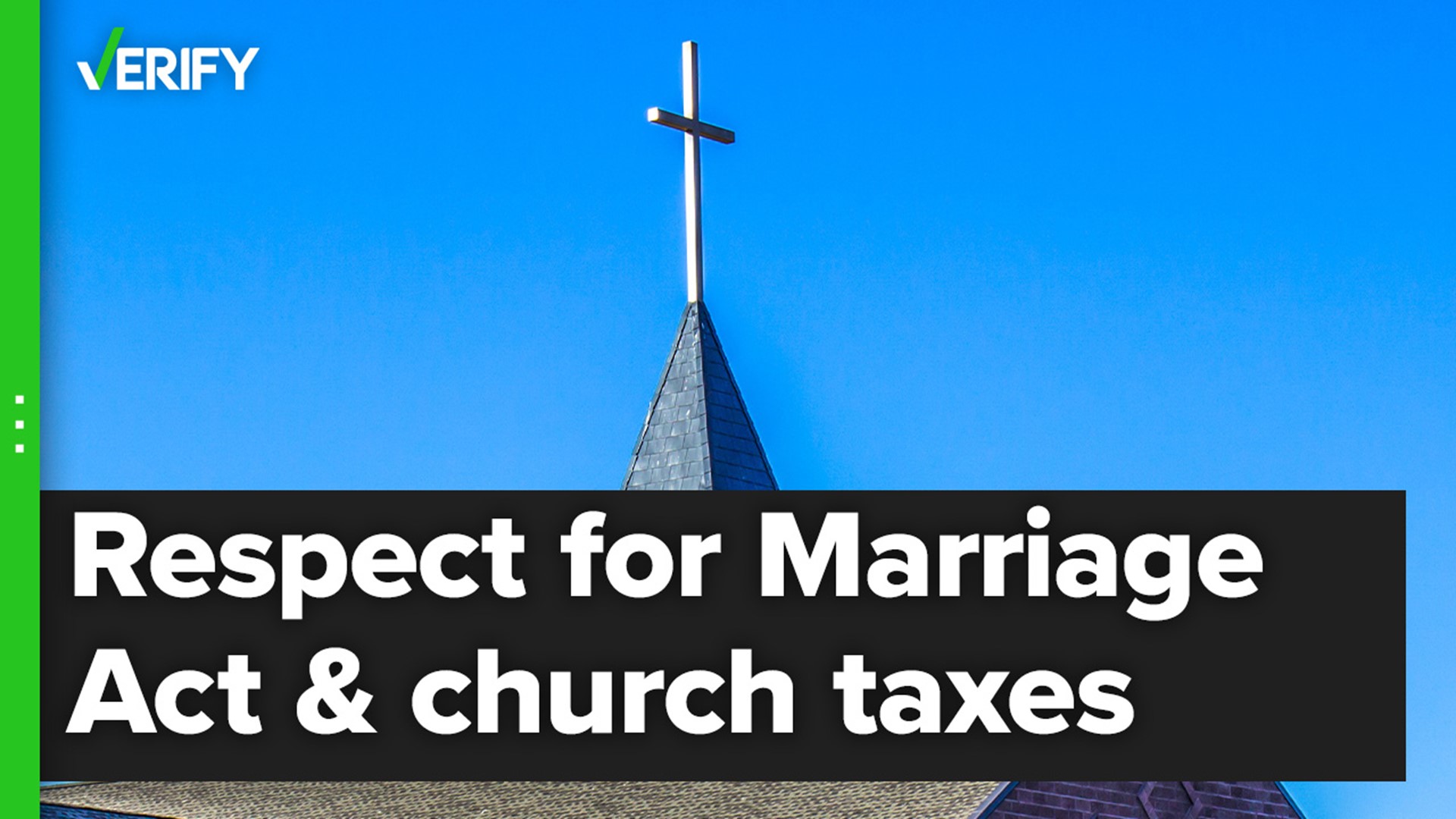President Joe Biden signed the Respect for Marriage Act (RFMA) into law in a White House ceremony on Tuesday, Dec. 13.
The legislation ensures that the federal government recognizes marriage regardless of race, ethnicity or sex, and requires all states to recognize marriages conducted legally in other states.
Lawmakers introduced the bill after Supreme Court Justice Clarence Thomas’ concurring opinion in Dobbs vs Jackson Women’s Health, the ruling that overturned the federal right to an abortion, called into question the legitimacy of the court’s previous ruling that legalized same-sex marriage.
In the weeks leading up to the legislation’s passage, some people online have claimed that the RFMA allows the Internal Revenue Service (IRS) to revoke the tax-exempt status of churches that don’t allow same-sex marriages.
A VERIFY viewer on TikTok also asked the team about the legislation's provisions regarding churches’ tax-exempt status.
THE QUESTION
Does the Respect for Marriage Act say the IRS can revoke tax-exempt status for churches that are against same-sex marriage?
THE SOURCES
- The Respect for Marriage Act (RFMA)
- Joint statement from senators on an amendment to the RFMA
- Dale Carpenter, professor and constitutional law expert at Southern Methodist University’s Dedman School of Law
THE ANSWER
No, the Respect for Marriage Act doesn’t say the IRS can revoke tax-exempt status for churches that are against same-sex marriage.
WHAT WE FOUND
The text of the RFMA explicitly says the IRS cannot revoke the tax-exempt status of religious or other charitable organizations if they refuse to perform same-sex marriages.
Section 7(a) of the legislation reads in part that “nothing in this act” may be used to “deny or alter any benefit, right, or status of an otherwise eligible person or entity,” including “tax-exempt status” or tax-treatment.”
Churches and other religious organizations are “generally exempt from income tax and receive other favorable treatment under tax law,” the IRS says.
A bipartisan group of senators added the language about tax-exempt status through an amendment to the bill. In a statement published on Nov. 15, before the claims were shared on social media, the senators said in part that “a church, university, or other nonprofit’s eligibility for tax-exempt status is unrelated to marriage, so its status would not be affected by this legislation.”
The act's protections for same-sex marriage don’t apply to private businesses or organizations, such as churches, either. They only apply to state and federal governments and government officials.
The text of the RFMA says it applies to those “acting under the color of State law.” That’s a legal expression referring to the government or government officials, Dale Carpenter, a professor and constitutional law expert at Southern Methodist University’s Dedman School of Law, told VERIFY.
There have been numerous other claims about the RFMA besides this one, including that it requires churches to perform same-sex weddings, or provide services for these ceremonies. That’s not true, Carpenter said.
The act says that “consistent with the First Amendment to the Constitution,” nonprofit religious organizations are not “required to provide services, accommodations, advantages, facilities, goods, or privileges for the solemnization or celebration of a marriage.”
“Any refusal under this subsection to provide such services, accommodations, advantages, facilities, goods, or privileges shall not create any civil claim or cause of action,” the RFMA reads.
For a more in-depth explanation of what the RFMA does and doesn’t do, click here.

